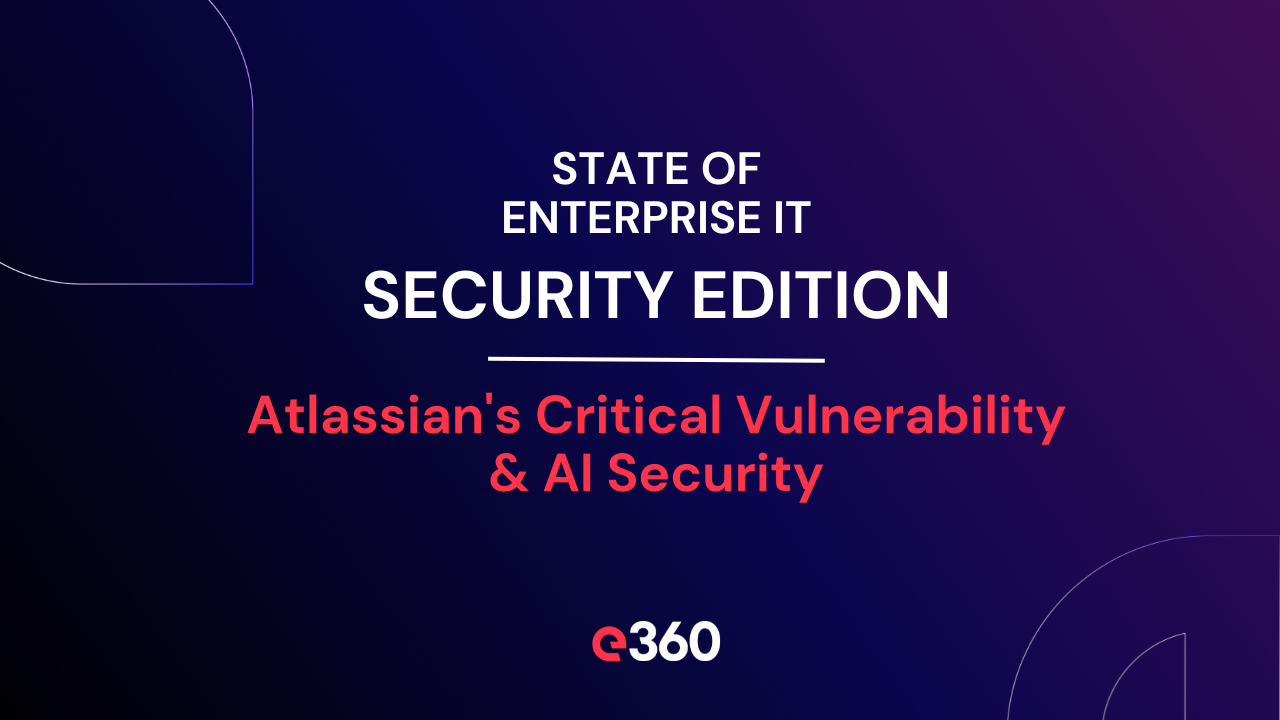In the rapidly evolving landscape of cybersecurity, artificial intelligence (AI) has emerged as both a tool for innovation and a potential vulnerability. In episode nine of the State of Enterprise IT Security Edition, Brad Bussie, Chief Information Security Officer at E360, provides an insightful exploration into the nuanced roles that AI systems, particularly those developed by OpenAI, play in the domain of cybersecurity.
Hackers from nations such as China and Russia are not only aware of OpenAI systems but are actively using them in their cyberattacks. However, contrary to the catastrophic scenarios often depicted in science fiction, the utilization of AI by these malicious entities is surprisingly mundane. "But instead of using AI to generate these exotic attacks that we were all worried about, the hackers, they've used it in pretty mundane ways," Bussie notes, highlighting a critical aspect of AI's role in cybersecurity—it's not always about the complexity or sophistication of the attack but about enhancing the efficiency of the attackers' existing methodologies.
Key Takeaways:
-
AI as Augmented Intelligence: Bussie emphasizes that AI should be viewed as augmented intelligence rather than a malevolent force poised to take over the world. "AI to me, is augmented intelligence," he remarks, underscoring that hackers are using AI to augment their capabilities, making them more productive in their malicious endeavors.
-
The Response from AI Companies: Upon detecting misuse, companies like OpenAI have taken proactive steps to revoke access and shut down the ability of these hacker groups and nation states to use their platforms for orchestrating cyberattacks. This action points to the ongoing cat-and-mouse game between cybersecurity professionals and hackers, where both parties are continually adapting to the evolving digital landscape.
-
The Challenge of Open Source AI Technologies: Open source AI technologies present a unique challenge to defenders. Bussie highlights the difficulty in defending against attacks that leverage these technologies due to their unpredictability and the wide array of sources they emanate from. "It makes the task a little bit harder to defend against because the attacks are coming from so many different places," he explains.
The use of AI in cyberattacks and cybersecurity is a double-edged sword. On one hand, it provides malicious actors with tools to augment their capabilities. On the other, it offers defenders new methods to detect and counteract these threats. The key takeaway from Bussie's discussion is the importance of understanding and adapting to the nuanced role of AI in cybersecurity. As the digital landscape continues to evolve, so too will the strategies employed by both attackers and defenders in this never-ending battle for digital supremacy.
Brad Bussie's insights not only shed light on the current state of AI in cybersecurity but also underscore the importance of remaining vigilant and adaptable in the face of new technological advancements. As we navigate the complexities of the AI era, it's crucial to remember that the power of these technologies lies not in their potential for destruction but in our ability to harness them for the greater good.
Episode Nine of the "State of Enterprise IT Security" podcast is available now. For more insights into how technology shapes our world, stay tuned to our blog for the latest in enterprise IT security and beyond.



